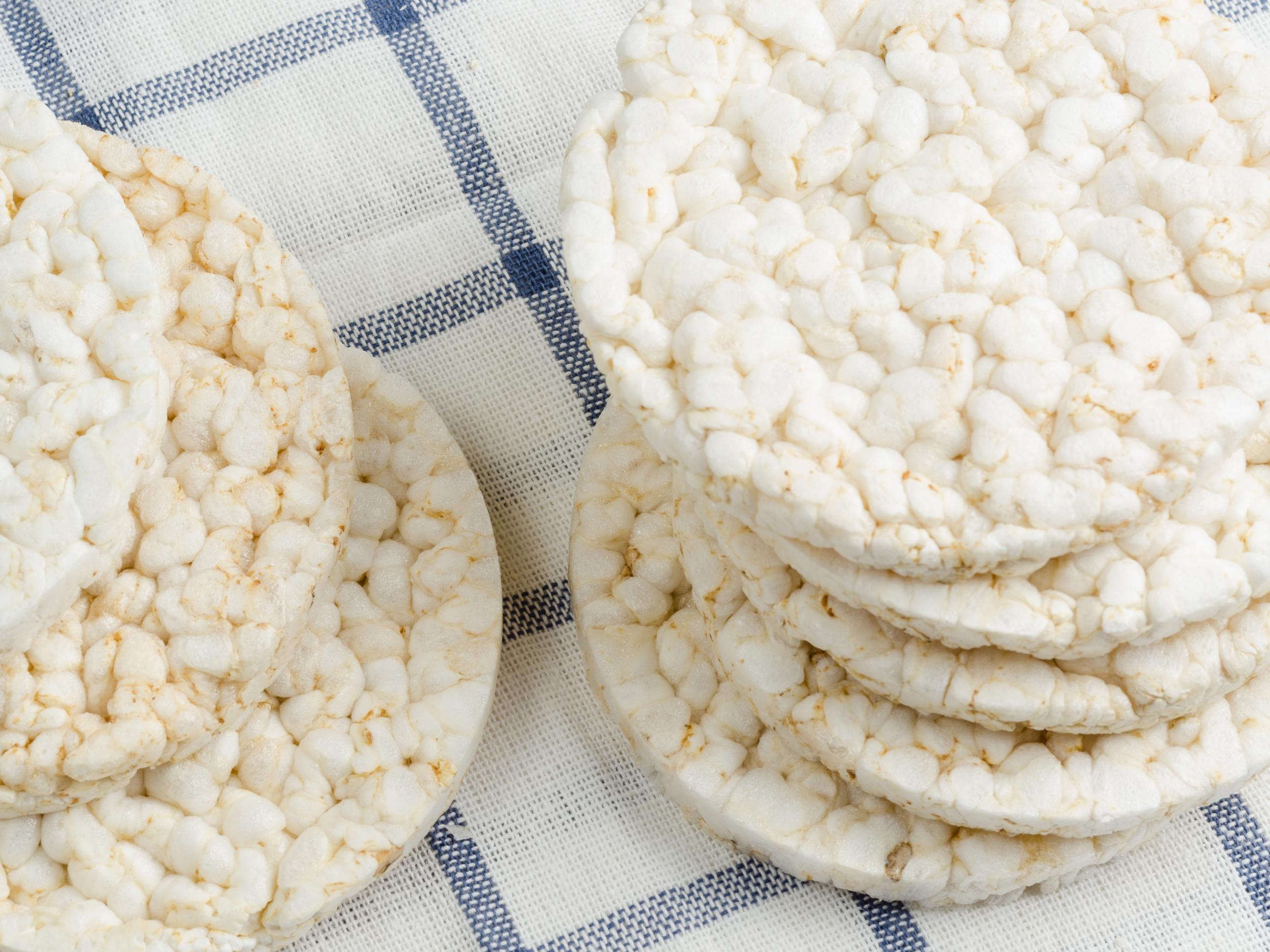The truth about food phobias – and why they’re a lot scarier than you realise
Assume that having a phobia of a particular food means just disliking it? Think again. Charlotte Cripps meets people who’ve had their lives turned upside down
Your support helps us to tell the story
From reproductive rights to climate change to Big Tech, The Independent is on the ground when the story is developing. Whether it's investigating the financials of Elon Musk's pro-Trump PAC or producing our latest documentary, 'The A Word', which shines a light on the American women fighting for reproductive rights, we know how important it is to parse out the facts from the messaging.
At such a critical moment in US history, we need reporters on the ground. Your donation allows us to keep sending journalists to speak to both sides of the story.
The Independent is trusted by Americans across the entire political spectrum. And unlike many other quality news outlets, we choose not to lock Americans out of our reporting and analysis with paywalls. We believe quality journalism should be available to everyone, paid for by those who can afford it.
Your support makes all the difference.Clare Dee is terrified of oranges. The mum of two can’t touch them, or even go near them. “It’s not just the smell,” the 39-year-old tells me. “It’s the whole thing: the pith, the skin and the segments. I avoid them at all costs.”
Even though Clare can happily suck on a lemon, she can’t peel an orange for her children, aged two and five, and her work colleagues at a London tech company know they can’t sit at their desks and peel one in front of her. Clare has never liked oranges, but she thinks her phobia stems from a specific experience in her childhood. She has a vivid memory of being offered orange segments in a clear plastic bag after a netball game, and it made her stomach churn. “I know it’s irrational, but I have no ambition to resolve my orange phobia,” she continues. “It’s difficult, though, at Christmas – oranges are everywhere.”

Food phobias are rife in all walks of life. The Line of Duty star Anna Maxwell Martin can’t bear to be around sandwiches, mayonnaise, and even dirty open fridges. Kendall Jenner has trypophobia, which is an intense fear of small holes in patterns – such as on pancakes. Eddie Redmayne hates eggs; he can’t even stand carrying them. Sarah Jessica Parker detests parsley, and – just to be safe – made her Sex and the City character Carrie hate parsley, too. Me? I can’t be near mixed sweetcorn and tuna. I put it down to eating too much of it in my early twenties.
The London-based phobia specialist Christopher Paul Jones, author of Face Your Fears: 7 Steps to Conquering Phobias and Anxiety, says that a food phobia, also known as “cibophobia”, is an intense fear or anxiety triggered by certain foods. “This can be caused by the sight, smell, or even just the thought of the food,” he tells me. Food phobias, he claims, often stem from early negative experiences, known as “Pavlovian conditioning”.
These experiences may include choking, allergic reactions, or emotional trauma related to food, such as being forced to eat as a child and then feeling sick. “In this way, food phobias can be seen as an extreme version of the aversion some people develop after consuming too much alcohol and later feeling nauseated at the sight or smell of it,” he says.
If left unaddressed, these fears can grow over time, leading to a severely restricted diet that can affect a person’s health. Jones – who is a fully trained psychotherapist and clinical hypnotherapist – combines mainstream psychology such as cognitive behavioural therapy (CBT) with intervention techniques such as clinical hypnotherapy, eye movement desensitisation and reprocessing (EMDR) and mindfulness for rapid change.

He claims that by breaking the emotional connection that triggers the fear response, he can resolve most phobias in one to four sessions. And that, unlike traditional hypnotherapy, his multi-pronged approach is more targeted to deal with the root of the problem.
According to food phobia guru Felix Economakis, who runs the private clinic The Heath Therapies in London’s Hampstead, most people with an extreme food phobia will eat two food items – such as nuggets and chips. Although he did treat a middle-aged man who had only eaten bread all his life.
“If the brain believes food is dangerous, it makes perfect sense to avoid it,” he explains. “But the brain knows it needs food to survive, so will pick what it perceives to be the safest food.” He points out, though, that food phobias can often be mistaken for anorexia, when in fact it’s “a lack of trust in food – usually misplaced”. He continues: “Sufferers have a sense of morbid dread about certain foods – their bodies will shake just as it would if you handed somebody a spider.”
For 23-year-old Torquay student Mark*, rice cakes with butter and Marmite have long made up the bulk of his diet. His mother secretly put vitamins in a paste underneath the marmite in a desperate attempt to keep him healthy as a child, he tells me. At the age of 16, he added nuggets and chips to his repertoire. For Christmas, he has a selection of Jacob’s crackers and biscuits for his special lunch.
“I used to get really anxious if I had to go to a party because I felt shame that I only ate rice cakes – a minimum of 12 a day,” he says. “I was never diagnosed with a disorder. I think it would have been a relief.” Instead, he suffered in silence. “I felt different, isolated, scared, had social anxiety and a bit of depression.”
He’s still extremely selective about food, but he feels that since attending university, he’s pushed himself by trying smoothies, finding it easier to be adventurous with drinks than solids. He is not seeking help – and is happy with where he’s now at. “Rice cakes are still my safe food – it’s familiar; the thought of trying different foods is very scary.” His mother puts his food phobia down to trauma, either from when he choked as a baby, or when a nursery worker got angry with him when he got messy with food.

Psychotherapist Kerrie Jones tells me that food phobias are more frequently seen in cases of avoidant/restrictive food intake disorder (ARFID), a complex condition characterised by an avoidance of certain foods that, importantly, is unrelated to body image or weight concerns. “Rather,” she says, “it can include sensory issues, trauma, or a fear of adverse effects, like choking or nausea.”
Food phobias are somewhat less common than other types of eating disorders, such as anorexia, bulimia, or binge eating disorder, she says, but they still impact a significant number of people. “For some individuals, these phobias become pervasive, limiting their diet to only a handful of ‘safe’ foods.”
The NHS tends to offer cognitive behaviour therapy (CBT) or family-based therapy to treat food phobias. Other techniques used include “food chaining” – creating “chains” between the food that those suffering from food phobias already eat and new foods that are similar in taste, colour or texture. These methods – also including exposure therapy – take weeks, even months, which makes more quick-fix options, like hypnotherapy, more appealing.
For Mark, and many others who suffer from food phobias, special events can trigger huge shame because of their eating habits. “Even though I’ve made all these improvements, I was a bit worried about asking my mum if I could go back to my traditional Christmas this year and have my usual Jacob’s Cream Crackers and butter,” he says.
He thinks he may have raised her expectations too high – that he’d come home eager to tuck into a roast turkey and all the trimmings. “In fact,” he says, “me pushing the boat out will be asking for some extra cheese triangles with my crackers.”
* Names have been changed

Join our commenting forum
Join thought-provoking conversations, follow other Independent readers and see their replies
Comments